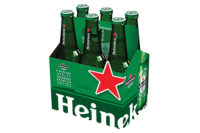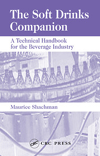ParaStar Stars for Eastman
The new ParaStar plant of Eastman Chemical, which is being touted by
the company as a major technological advance in the processing of
polyethylene terephthalate (PET), received its official grand opening in
April in a ribbon-cutting ceremony attended by local officials, company
officers and the media.
The plant, an addition to Eastman’s 40-year-old
PET facility in Columbia, S.C., started production at the beginning of 2007
and currently is producing at a rate of about 350,000 metric tons a year.
By mid-2008, annual production should reach 450,000 metric tons, says
Thomas Stevens, Eastman’s vice president and general manager for the
performance polymers business.
Eastman is calling
ParaStar a “next generation” PET with improved clarity and
reduced amounts of acetaldehyde, which can impart off-flavors to foods and
beverages. ParaStar is made through a new process Eastman calls IntegRex,
which significantly reduces the processing steps required to make PET
resin. Much of this comes from the elimination of “solid
stating,” or requiring the resin to solidify before it can be
crystallized and purified. By crystallizing and purifying the plastic while
it’s still liquid, the IntegRex process achieves significant
streamlining in steps and equipment.
This and other improvements allow the resin to be made
in a smaller plant with less energy. The Columbia ParaStar plant is half
the size of the older facility but has twice the production capacity,
company officials say.
Sustainable advantage
The environmental impact of ParaStar is a major part
of Eastman’s sales pitch. Company officials say it takes 40 percent
less energy to make ParaStar than to make an equivalent amount of PET. In
addition, not only can bottles made from ParaStar run on existing
blow-molding and filling equipment with no modification, but bottles can be
blow-molded faster, with less energy, because the resin heats up and
processes more quickly.
Company officials hope ParaStar’s
“environmental footprint” will be recognized by companies like
Wal-Mart, which is implementing a sustainability initiative that
encompasses packaging. But Brian Ferguson, Eastman Chemical’s chief
executive officer, says it’s hard for a packaging material supplier
to insist on recognition by a retailer like Wal-Mart.
“This is a delicate area because Wal-Mart is not
our customer; they are our customer’s customer,” Ferguson says.
“I think Tom [Stevens] is very sensitive to working with his
customers as to how they want to approach their customer, as opposed to us
marching into Wal-Mart and saying, ‘I’ve got an answer, and you
need to demand it of Procter & Gamble and Coca-Cola.’”



